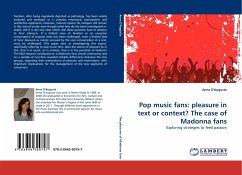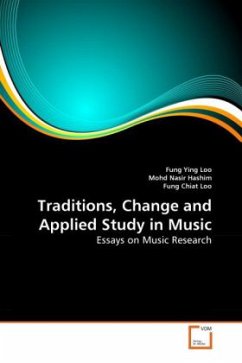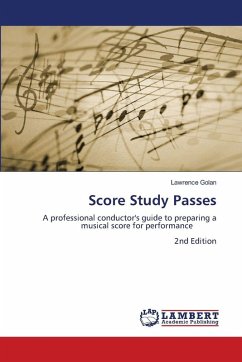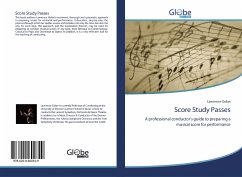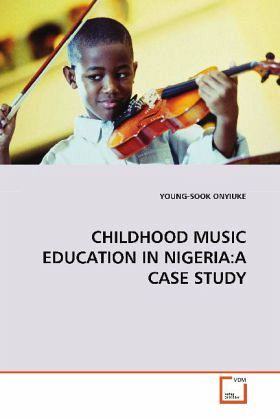
CHILDHOOD MUSIC EDUCATION IN NIGERIA:A CASE STUDY
Versandkostenfrei!
Versandfertig in 6-10 Tagen
45,99 €
inkl. MwSt.

PAYBACK Punkte
23 °P sammeln!
This study attempts to emphasize the indispensable feature of childhood music education in Nigerian schools. It points out that although music is included in the primary school syllabus, it is often neglected. It also notes that Government s written commitment to ensuring that children receive music education has not been adequately fulfilled. Some of the benefits of music education have been highlighted: for example, the music experience in the classroom can promote the emotional, intellectual, physical development of the child. I also stressed the values of music (indigenous and modern) and ...
This study attempts to emphasize the indispensable
feature of childhood music education in Nigerian
schools. It points out that although music is
included in the primary school syllabus, it is often
neglected. It also notes that Government s written
commitment to ensuring that children receive music
education has not been adequately fulfilled.
Some of the benefits of music education have been
highlighted: for example, the music experience in
the classroom can promote the emotional,
intellectual, physical development of the child. I
also stressed the values of music (indigenous and
modern) and the most important fact that experience
in music can help the child to understand different
aspects of his or her own culture and to appreciate
aspects of other cultures. Certainly, the
inculcation of childhood music education is one sure
way of equipping our young generation to become
musically talented with bright prospects in the
future.
feature of childhood music education in Nigerian
schools. It points out that although music is
included in the primary school syllabus, it is often
neglected. It also notes that Government s written
commitment to ensuring that children receive music
education has not been adequately fulfilled.
Some of the benefits of music education have been
highlighted: for example, the music experience in
the classroom can promote the emotional,
intellectual, physical development of the child. I
also stressed the values of music (indigenous and
modern) and the most important fact that experience
in music can help the child to understand different
aspects of his or her own culture and to appreciate
aspects of other cultures. Certainly, the
inculcation of childhood music education is one sure
way of equipping our young generation to become
musically talented with bright prospects in the
future.



